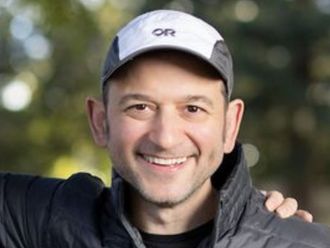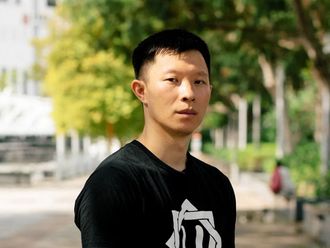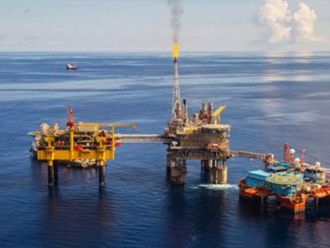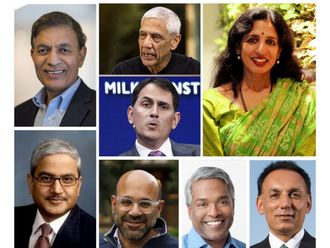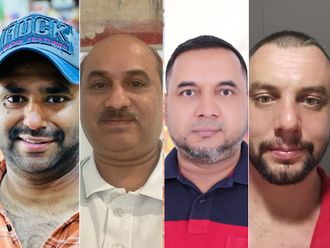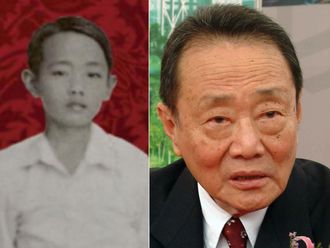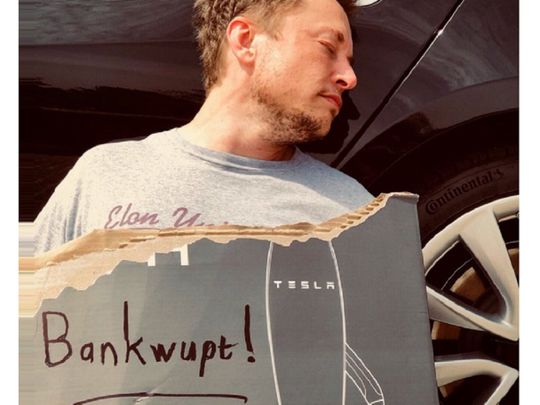
Highlights
- By education, Elon Musk is a physicist, an economist and a self-taught coder.
- By attitude, Musk readily admits his own inadequacies, and is a big fan of “iteration”.
- His best-known secret: a first-principles approach to problem solving.
Billionaire Elon Musk needs no introduction. He is one of the headline speakers on Day 3 of the World Government Summit (WGS) 2023 in Dubai on Wednesday (February 15, 2023).
The serial technopreneur is best known as the chief executive and chief technology executive of Space X, CEO of Tesla and Neuralink.
He is also the founder of The Boring Company, and co-founder of OpenAI and PayPal.
He controls Starlink, currently the world’s biggest communications constellation, with more than 3,500 satellites in space. He owns Twitter, after a highly publicised $45-billion take-over in October 2022, for which he says now needs a new CEO.
Tesla produced over 1.3 million electric vehicles in 2022 and is one of more famous brands Musk deftly guided from the throes of bankruptcy. Space X, which also stared bankruptcy in the face, has completely disrupted space travel by significantly reducing access through reusable rockets.
It’s no wonder Musk is one of the world’s top billionaires today. Six things you need to know about him:
#1. Net worth
Musk's personal worth is currently estimated at $188.6 billion, according to the Forbes’ real-time wealth list, second to Bernard Arnault & family, with a net worth of $209.5 billion, as of February 14, 2023.
$ 188.6 b
Forbes’ real-time estimate of Elon Musk's net work as of February 14, 2023.He was once the world’s richest man. Musk lost between $180 billion and $200 billion since November 2021, largely due to the poor performance of Tesla stocks in recent months. His fortune went from about $320 billion in 2021 to its current level of about $188.6 billion.
#2. Source of wealth
Musk’s wealth comes from his numerous successful business ventures. As a 12-year-old, he taught himself how to code and made the PC game Blastar which he sold for $500. In the late 1990s, he co-founded PayPal, an online payment system, and sold it to eBay for $1.5 billion in 2002.
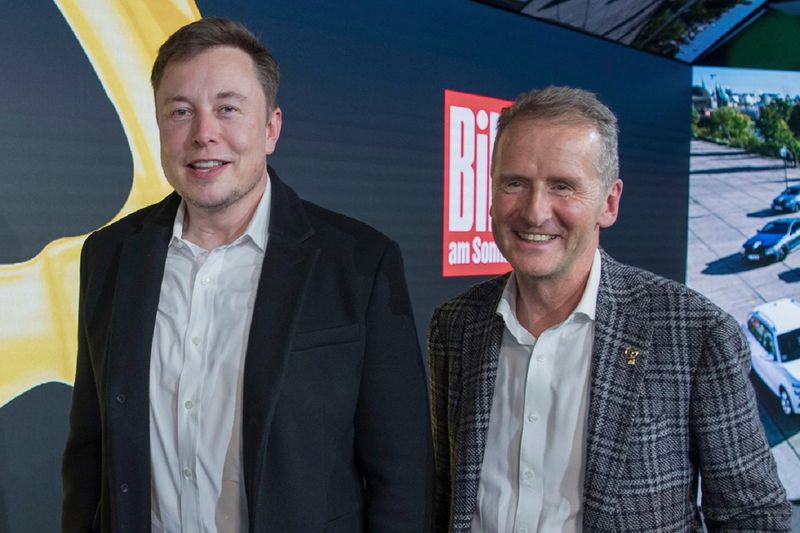
Many Musk-watchers attribute his success to a first-principles approach to problem solving. Musk, 51, has founded and led several companies that have disrupted traditional industries and challenged existing business models.
He is not without controversy, especially following his takeover of Twitter. Yet, many are fascinated that his companies continue to roll out new technologies and innovative solutions that change the way people think about and use products and services.
Investors, both retail and the big institutional money managers, have embraced Musk's ideas, and this has contributed to the build-up of his immense wealth. In late October 2021, Tesla's market capitalisation hit $1 trillion for the first time, making Musk the first-ever person worth $300 billion or more.
It's a testament to his brand of execution. His devotion toward constant iteration — in and out of the manufacturing floor — stems from a coder's mindset. This may be difficult for slow-moving “legacy” automotive companies — and the trillion-dollar industrial base around it — to grasp or match.
#3. First-principles approach
It's his best-known weapon. Perhaps it's also his biggest asset. Musk readily admits to his own faults, and brushes with bankruptcies. He's able to make fun of himself, laugh at his own foibles, such as when he feigned sleeping in a factory with a cardboard emblazoned "Bankwupt" in the midst of a Tesla production ramp up in 2018. Apparently, it's that little craziness that keeps him sane.
He's considered a disruptor, not because he is infallible, but because of his persistence to innovate, or iterate, constantly.
His ideas, his first-principles approach to problem solving, his ability to turn those ideas into successful companies, and his commitment to solving important problems facing society all form the basis of his toughest decisions, including the recent acquisition of Twitter.
While the first-principles approach is basic, it has far-reaching implications. Essentially a first-principles solution is a problem-solving approach that starts from a fundamental understanding of the underlying principles and laws of a given system, rather than relying on preconceived notions, analogies, or past experience.
The goal: to derive solutions directly from the most basic and fundamental principles that govern the behaviour of the system.
In other words, this problem-solving route involves breaking a problem down into its smallest constituent parts — sort of like breaking a dance number into smaller parts, analysing and mastering each part in detail, and then combining the understanding of the individual parts to build a complete “dance”, or solution.
This approach is often used in physics, engineering, and other technical fields where understanding the underlying principles of a system is key to designing around i or improving it.
The first-principles approach is often contrasted with a more “heuristic” or intuitive approach — where solutions are based on experience, intuition, or educated guesses, rather than a deep understanding of the underlying principles.
While the heuristic route can sometimes lead to quick and effective solutions, a first-principles solution is often more reliable, accurate, and able to be applied to a wider range of problems.
#4. 'Disruptor'
Some of the ways in which Musk has disrupted industries:
Tesla: Musk co-founded Tesla in 2003 with the goal of producing affordable, mass-market electric vehicles powered by the same batteries used in phones/laptops. Tesla's electric cars have disrupted the automotive industry by offering consumers a cleaner, more efficient alternative to traditional gas-powered vehicles. Tesla has also disrupted the energy industry by producing and installing solar panels and batteries for homes and businesses.
Space X: Elon Musk founded Space X in 2002 with the goal of reducing the cost of space travel and enabling the colonization of Mars. Space X has disrupted the aerospace industry by developing reusable rockets and launching satellites for commercial customers, as well as by introducing new approaches to space exploration and transportation.
The Boring Company: Elon Musk founded The Boring Company in 2016 to address traffic congestion in cities by building underground transportation systems. The Boring Company is disrupting the transportation industry by proposing a new, high-speed transportation solution that could reduce travel time and improve efficiency.
Neuralink: Elon Musk co-founded Neuralink in 2016 with the goal of developing brain-machine interfaces to enhance human cognitive and physical capabilities. Neuralink is disrupting the healthcare and technology industries by exploring new ways to treat neurological conditions and enhance human abilities.
#5. Out-of-this-world goal
In addition to his business success, Musk is known for his ambitious and innovative ideas — such as colonising Mars and developing technology to merge human brains with computers.
The occupation of Mars by humans is a lofty one. Towards that end, Musk is already building the rocket. Space X's Starship is the world's biggest rocket so far. These forward-thinking ideas have helped to increase his personal brand and public profile, making him one of the most recognisable and influential figures in the tech industry.
• Continuous software updates: Tesla cars are equipped with a sophisticated onboard computer system that can receive over-the-air (OTA) software updates, sort of like an Apple iOS or Android update. This allows Tesla to continuously improve the performance, features, and safety of its cars without requiring owners to bring their vehicles in for service.
• Design improvements: Tesla is constantly iterating on the design of its vehicles to improve their efficiency, performance, and aesthetics. For example, the company has made numerous changes to the design of its battery packs to improve their energy density and reduce the overall weight of the car.
• Manufacturing process improvements: Tesla is also constantly iterating on its manufacturing processes to improve efficiency and reduce costs. One example: the company has developed new methods to cut car parts count through "gigacasting", which further simplifies manufacturing, reduces weight, cuts costs, and boosts structural strength of the vehicles' underchassis. Another example: shifting to battery cells that allow for greater automation and weight reduction, while improving efficiency and the underlying battery chemistry.
• Customer feedback: Tesla is known for its responsiveness to customer feedback, and the company uses this feedback to constantly iterate and improve its products. For example, Tesla has added new features to its cars, such as dog mode, following customer requests.
#6. Elon's Challenges
Musk has set his eyes on colonising of Mars before he dies. But down here below, he faces numerous challenges — and court cases. Earlier this month, Musk won a case involving a tweet he sent out on a plan to take Tesla private. On February 4, a California jury has ruled that Musk is not liable for losses experienced by Tesla shareholders following his controversial "funding secured" tweet from 2018.
In September, Musk and Tesla were sued in a proposed class action accusing the EV company of misleading the public by falsely advertising its Autopilot and Full Self-Driving features. The complaint accused Tesla and Musk of having since 2016 deceptively advertised the technology as fully functioning or "just around the corner" despite knowing that the technology did not work or was nonexistent, and made vehicles “unsafe”.
The lawsuit followed complaints filed on July 28 by California's Department of Motor Vehicles accusing Tesla of overstating how well its advanced driver assistance systems (ADAS) worked. Reuters reported that remedies could include requiring restitution to drivers.
While Autopilot and FSD are helpful, they are not perfect. Autopilot still requires the driver to pay attention and be ready to take over anytime. Given that stardards are considerably higher for vehicle control, the way they are marketed could also be in for greater scrutiny.
The AI used by Tesla for Autopilot and FSD improves with every kilometre driven by beta-testers to “train” it to improve safety, yet it may never reach 100 per cent fail-safe mode. Even if it does prove safe on most trips, a miraculous perfection would be hard to scale.
• National Highway Traffic Safety Administration (NHTSA) data, however, show more than 38,000 die each year on US roads caused by human drivers.
• There are 222 accidents per 100,000 drivers in the US. The US fatality rate is 12.4 deaths per 100,000 inhabitants.
• Road crashes are the leading cause of death in the US for people aged 1 to 54. An additional 4.4 million people suffer serious injuries from road accidents.
• The economic and social impact of road crashes cost US citizens an estimated $871 billion per year.
• According to the NHTSA, pedestrian and bicyclist fatalities continue to rise in the US.
• Autopilot experienced "one crash for every 4.31 million miles", claims Tesla.
• Tesla’s full self-driving (FSD) system is a Level 2 autonomous driving system currently used by about 160,000 drivers as "beta testers". It is far from perfect, and undergoes constant iteration.
• On November 24, 2022, a reported malfunction in a Tesla Model S, allegedly with FSD engaged, caused a pileup involving 8 vehicles. Nine people were injured, including a two-year-old child, though none seriously.
• NHTSA is looking into Tesla's Autopilot and FSD features after reports of unforeseen braking that happens "without warning, at random, and often repeatedly in a single drive."
• Numerous Tesla drivers have filed hundreds of complaints. Some have spoken about near-collisions and safety worries. NHTSA has advanced the probe last year to what it refers to as an "engineering analysis".
• According to NHTSA, it was still learning more about the collision from Tesla and law enforcement.
• Given that stardards are considerably higher for vehicle control today, the way Autopilot and FSD are marketed could also be in for greater scrutiny.
On Youtube, many Tesla fan boys (and fan girls) extol the value of Autopilot and FSD. The numbers show they're way better than human drivers in avoiding accidents, especially fatal ones. That’s free advertising for Musk, and zero expense for maximum reach.
But many who see him as a miracle worker may need a healthy dose of reality.


